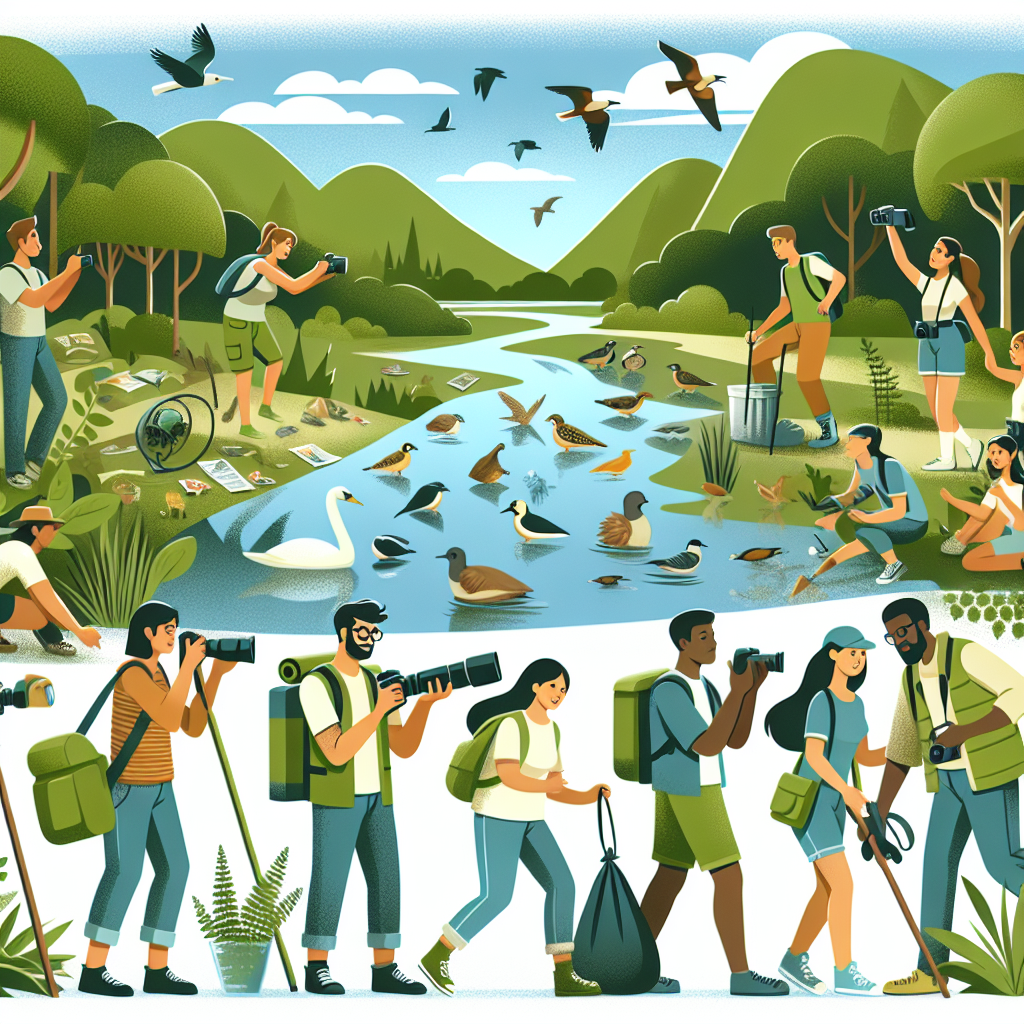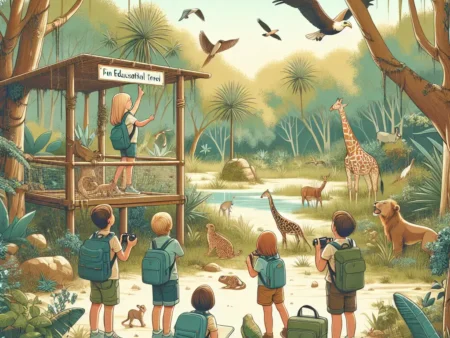Wisata Alam: Menikmati Keindahan Alam, Berkontribusi pada Pelestarian Lingkungan.
Wisata Alam: Menikmati Keindahan Alam Sambil Berkontribusi pada Pelestarian Lingkungan
-
Table of Contents
Introduction

Indonesia is a country blessed with breathtaking natural beauty, from lush rainforests to pristine beaches and majestic mountains. Wisata alam, or nature tourism, has become increasingly popular among both locals and tourists who seek to immerse themselves in the wonders of Indonesia’s natural landscapes. However, it is essential to not only enjoy these natural treasures but also contribute to their preservation. In this article, we will explore the concept of wisata alam and how it allows us to appreciate the beauty of nature while actively participating in environmental conservation efforts.
The Importance of Wisata Alam
Preserving Biodiversity
Indonesia is known for its rich biodiversity, housing a significant portion of the world’s plant and animal species. Wisata alam plays a crucial role in preserving this biodiversity by promoting sustainable practices and raising awareness about the importance of conservation. By visiting natural attractions, tourists can witness firsthand the incredible variety of flora and fauna that Indonesia has to offer. This experience fosters a sense of appreciation and responsibility towards protecting these ecosystems.
Supporting Local Communities
Wisata alam also provides economic benefits to local communities, particularly those living in rural areas near natural attractions. By attracting tourists, these communities can generate income through various means such as accommodation, food services, and handicraft sales. This economic boost helps improve the standard of living for local residents and reduces their reliance on activities that may harm the environment, such as illegal logging or poaching.
Best Practices for Wisata Alam
Responsible Tourism
To ensure the long-term sustainability of wisata alam, it is crucial to practice responsible tourism. This involves minimizing the negative impact on the environment and local communities while maximizing the positive outcomes. Some key practices include:
1. Respect for Nature: Visitors should adhere to designated trails, avoid littering, and refrain from disturbing wildlife. It is essential to leave natural habitats undisturbed and in their original state.
2. Support Local Businesses: Opt for locally-owned accommodations, restaurants, and tour operators. This helps to distribute economic benefits more equitably among the local community.
3. Educate Yourself: Learn about the local culture, customs, and environmental challenges before visiting. This knowledge will enable you to make informed decisions and engage in respectful interactions with the community.
Collaboration with Conservation Organizations
To enhance the impact of wisata alam, collaboration between tourism stakeholders and conservation organizations is crucial. These partnerships can involve joint initiatives such as:
1. Reforestation Programs: Planting trees in deforested areas helps restore habitats and combat climate change. Tourists can actively participate in these programs, contributing to the restoration of the environment they enjoy.
2. Wildlife Conservation Efforts: Supporting organizations that work towards protecting endangered species and their habitats is another way to make a positive impact. This can be done through donations, volunteering, or participating in educational programs.
Examples of Wisata Alam in Indonesia
Komodo National Park
Located in the eastern part of Indonesia, Komodo National Park is a UNESCO World Heritage Site and home to the famous Komodo dragons. This natural wonder attracts tourists from around the world who come to witness these unique creatures in their natural habitat. The park management emphasizes sustainable tourism practices, including strict visitor guidelines and conservation programs to protect the fragile ecosystem.
Mount Bromo
Mount Bromo, situated in East Java, is an active volcano surrounded by a vast sea of sand. It is a popular destination for hikers and nature enthusiasts who are captivated by its otherworldly beauty. To preserve the area, the local community has implemented waste management systems and established designated viewpoints to prevent erosion and habitat destruction.
Conclusion
Wisata alam offers a unique opportunity to experience Indonesia’s natural beauty while actively contributing to its preservation. By practicing responsible tourism and supporting local communities, we can ensure the long-term sustainability of these natural attractions. Collaboration with conservation organizations further enhances the impact of wisata alam, allowing us to make a positive difference in environmental conservation efforts. So, let us embrace the concept of wisata alam and enjoy the wonders of nature while being responsible stewards of the environment.







